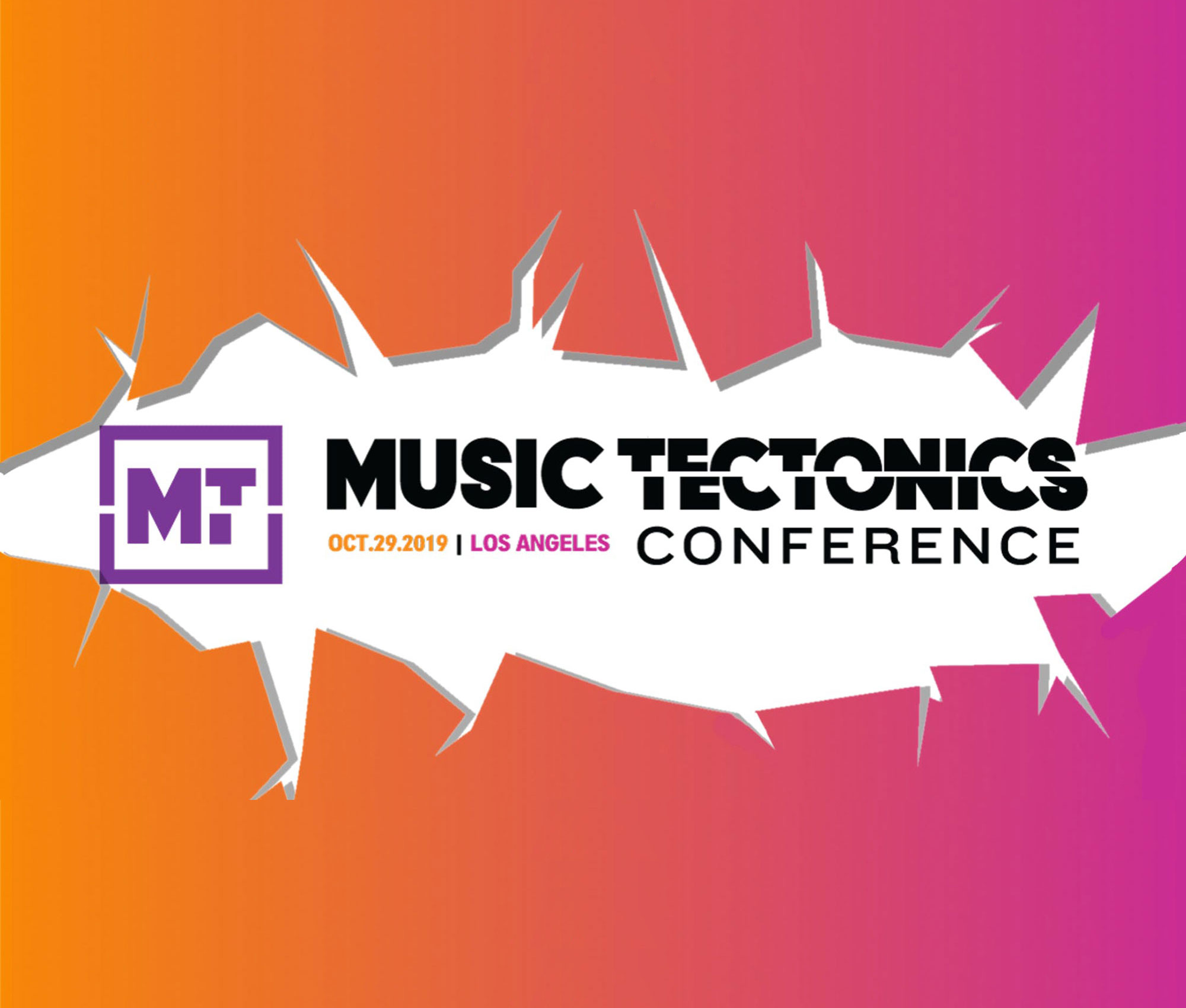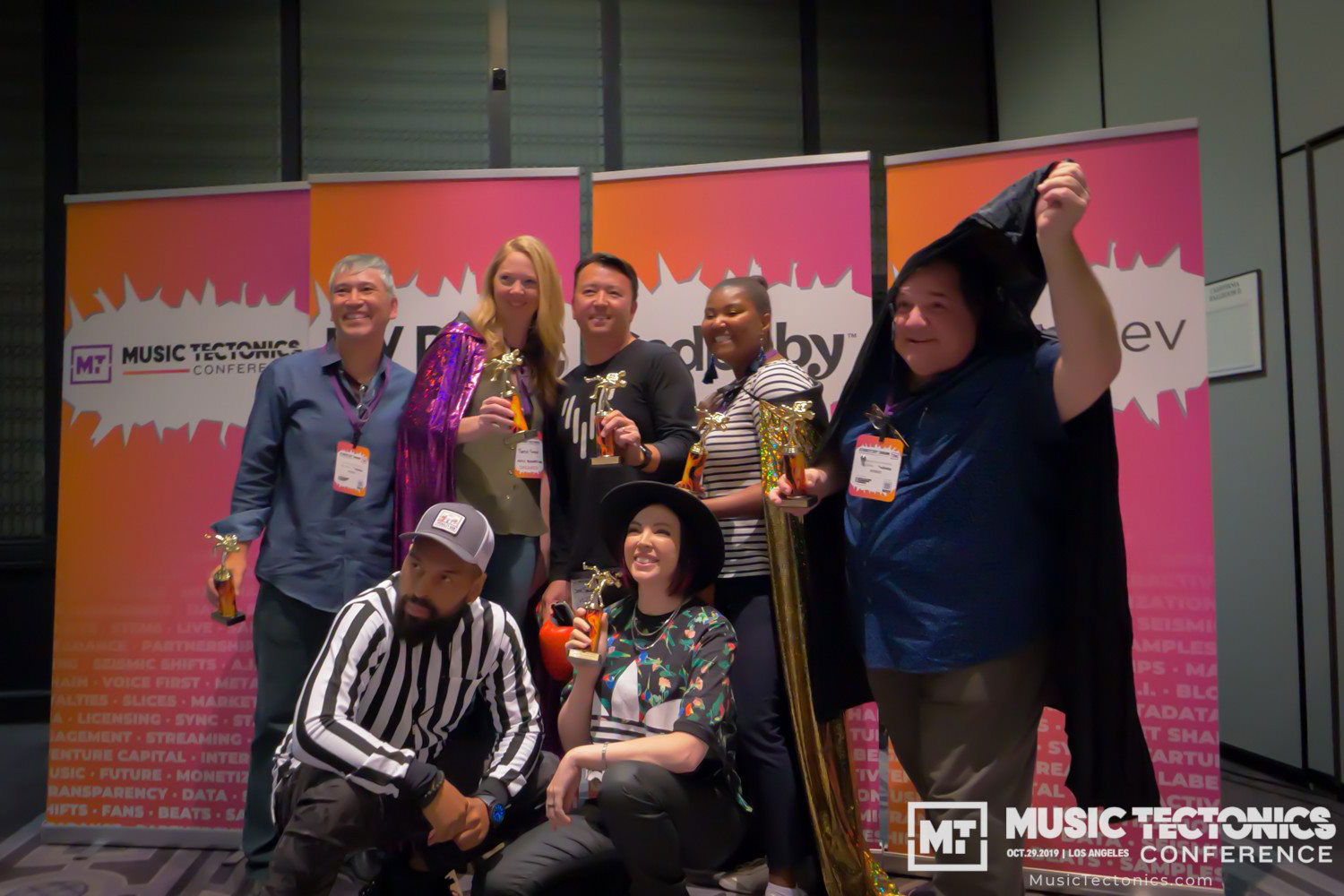



I first heard about the term “music is like fire” from the Music Tectonics Podcast. It comes from “music is like water,” where music is treated as a commodity because of music streaming services. In other words, it’s cheap and you can get it anywhere. As opposed to music being like fire, spreading onto smart speakers, into social media, and everywhere else in our lives.
Dmitri Vietze, host of the Music Tectonics Podcast, printed up 18 trading cards with themes similar to “music being like fire,” which could be collected at the first-ever Music Tectonics Conference. The trading cards were a fun way of getting to know others at the conference, as well as a helpful way to know what’s going on in the music industry. The next best ways were the panels. Two of which, my favorite and least favorite panel, got me thinking about how AI, blockchain, and podcasts relate to music, specifically music curation.
To show off my true music geekiness: I was the first paid subscriber to Beats Music. I know this because my friend was working there at the time and told me. The day Beats Music debuted, I found a backway to opt-out of the free trial and subscribe first. I was very enthusiastic about Beats Music’s potential, as you can tell. A few weeks before that, my friend asked me if I had any thoughts or questions about Beats, some of which I still have today, specifically #2 & #4.
The Music Tectonics Conference had a showcase, “A.I.’s Got Talent: An Artificial Intelligence Talent Show,” that talked about AI’s effect on music creation and consumption. One of the presenters, Super Hi-Fi, seems to have solved #4, transitioning between songs. Now I just can’t wait to hear it implemented on a major music streaming service.
The showcase’s three other presenters dealt with AI and music creation, but the technology progressing music creation right now seems to lean towards augmenting human intelligence rather than artificial intelligence itself. Augmented intelligence can amplify the ease and capability in creating music with people rather than trying to replace us. Clearly machines are far from doing it well themselves.
It’s hard for people to make great music and we’ve been learning for at least a few thousand years. Machines are only beginning to learn at near-human intelligence, but they’re catching on much quicker. In the end though, we’re the ones with the ears. We decide what’s good. At least for now.

The Blockchain Cage Match was kind of a shit show. Hosted by NWA’s Arabian Prince, it was guys vs gals. Guys on the side of blockchain, gals going against. The cage match quickly turned into a fight pointing out where blockchain can’t help (e.g. making sure people put in the correct data.) The fight eventually degraded into a battle of the sexes.
It would’ve been a great exercise to have the teams switch viewpoints halfway through but.. didn’t happen. It did get me thinking about where blockchain can really make a difference: giving more prominence and visibility to music curators, addressing my second question in the email I wrote about Beats.
In my last article on Spotify & Discovery, my appeal for music curation to be treated as an art form, or at least a business, left a looming question in my mind of how music curation can be better valued and monetized. Payola has been rampant throughout the music industry since radio and there hasn’t been a proper fix. Like how Spotify helped curb piracy for musicians.
I know micropayments are a promise of the internet that haven’t been adopted almost anywhere, but the technology and necessity are only slowly coming together now (or laterish.) The ability for music services like Spotify to pay music curators a small share when getting musicians discovered is the best way in my mind to make music curation a thriving business.
It may not end up being the technology that changes how music curators (and just as important, music creators) get paid, but like 2pac did for Kendrick and torrenting did for Spotify, blockchain may be the catalyst to what gets music curators paid.
I know it sounds ridiculous to say another chunk of a musician’s income should be taken from them (I don’t, it should come out of the streaming service’s pocket,) but an even bigger problem is musicians getting heard. Leveling the playing ground for music curators will, in turn, do so for creators too. Creating a thriving business for both.
A good conference has its benefits over a recorded podcast, but I find at least one informative and inspirational talk on a podcast a day.
Above is a shortlist of the people I saw at The Music Tectonics Conference that have a music podcast. For a fuller list of music podcasts I listen to, check out my “Let’s Talk About Music” collection on Himalaya. I work on discovery for them :)